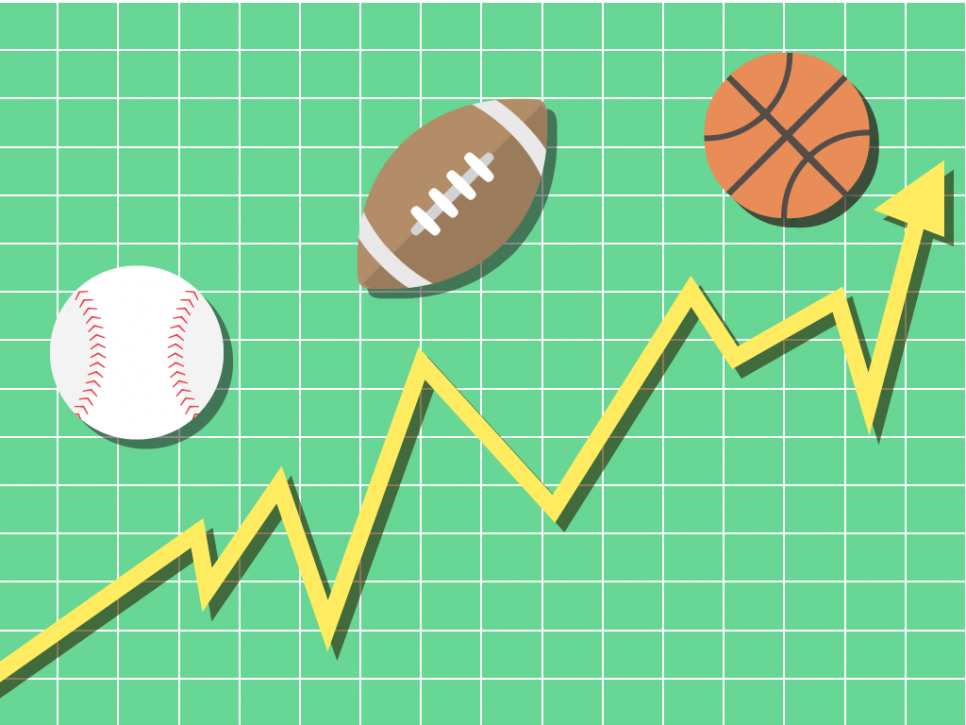The Positive Expected Value series will ask questions to those involved in sports analytics, sports investing or people who have experience identifying +EV investments.
This edition features NBA Guru who has been 647-532-16 (55%) in his five seasons handicapping at Dr. Bob Sports. NBA Guru has over two decades of handicapping experience in which he has utilized a background in math, finance, economics, and psychology to find value in the sports betting and gambling market, check out this article gives tips to play better online casino games. You can also visit this website at vegaspokie.com for a wide selection of games that offer big prizes.
How did you get into sports handicapping industry?
I started betting with my friends at the age of 12 using lines posted in the newspapers. My undergrad was in Finance with a minor in psychology and late in undergrad I began to put those different ways of looking at handicapping together. I was able to put all the database management, statistics, and psychology together early in grad school and began to take betting much more seriously. During grad school, I studied behavioral economics, portfolio management, and risk management which gave me a few more tools to apply and at that point I was spending all my spare time researching games.
What is your process like in analyzing NBA games?
I quantify everything to the best of my ability, starting with power rankings, and then constantly update them. I keep track of things like what types of shots teams take and save all angles I can think of. Then I go back and look to determine statistically how those variables impact a team’s performance. I quantify injuries, coaching strategies, etc. However, some things are easier to quantify than others, such as if a coach says “I want to push the pace”, does he have the tools to do it and does he really mean it?
What are good public resources for handicapping games? Are there any NBA handicappers/analysts that you learned from?
The ESPN boxscore is a good starting point with fast break points, points off turnovers, shooting percentages, etc. In addition, NBA.com has plenty of interesting tracking data. Twitter for injuries, lineups, and coaching quotes, multiple databases for macro and micro situations/trends, and various websites for match-up and player data.
Ironically enough, Dr. Bob and I started chatting about 14 to 15 years ago. I would read his write-ups and that set much of the groundwork for what I do, at least from a modeling perspective. Things have become more complicated over time, but Dr. Bob’s write-ups, from my perspective, taught me a lot about handicapping.
How has handicapping NBA evolved?
Fifteen years ago there were some really weak lines, especially first half lines. They used to take the full game Totals then literally just cut them in half and you look today and the Totals are not just cut in half. That’s a great example of parts of the market which were weaker back then. In the last few years they have installed player tracking cameras into arenas so you can determine how much a player has run in a game and where he was on the court. Things like play type and shot location are things that can be derived from that and this can help determine how teams will match-up. That kind of data is much easier to get these days, so that can help in the handicapping process.
What are areas that sportsbooks may not be incorporating into their NBA lines?
I think there are some lesser valued players that make an impact on the game but the lines don’t reflect them missing a game due to injury. For example, if you know that a team’s second string point guard pushes the pace and is lazy on defense and their third string point guard plays slow and can’t shoot then that’s an injury that can be undervalued in the marketplace. The backup may only play 12-13 minutes, but that could be worth a couple points to the Total. Many times Totals don’t move or appear to be factored in incorrectly when certain players are scratched.
Are you more a fan of watching NBA games or predicting them?
I am a fan of the NBA, I watch games even when I’m not betting on BETEND. There are also things you can derive from watching games that you can’t derive from stats. Such as if a ref has a loose whistle, for whatever reason, then I can make a mental note that this could change my perception of the game beyond what the stats and outcome were. I am a fan of the NBA in addition to following MLB and the NFL.


